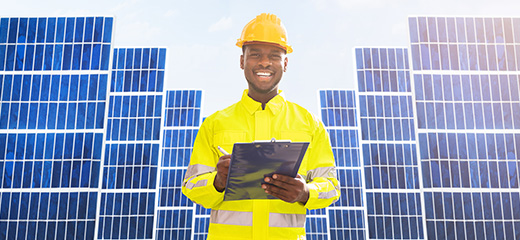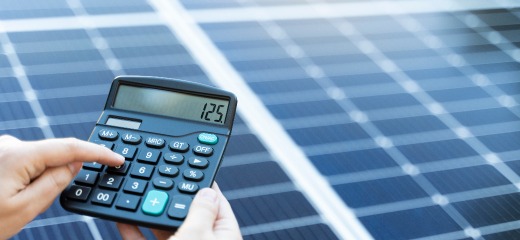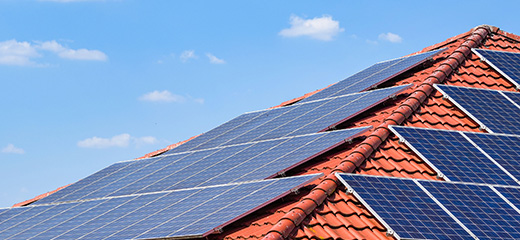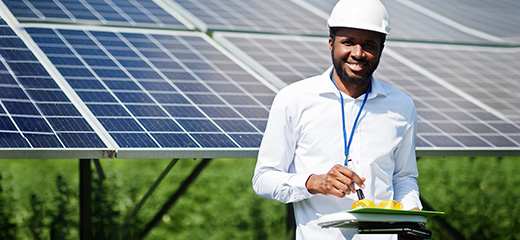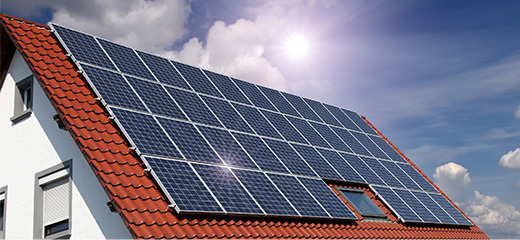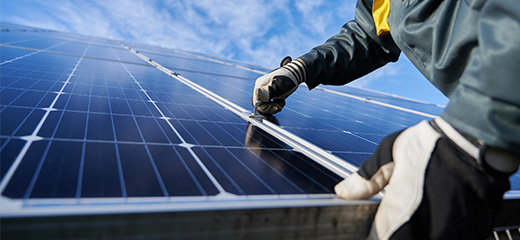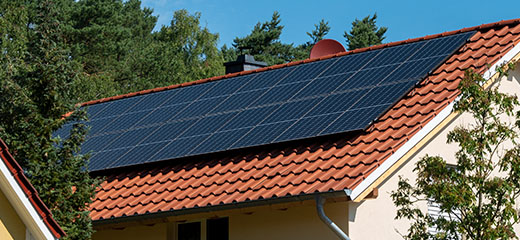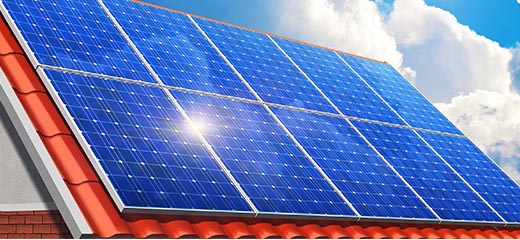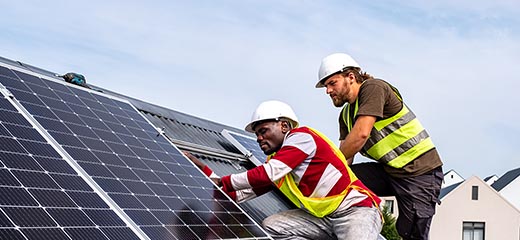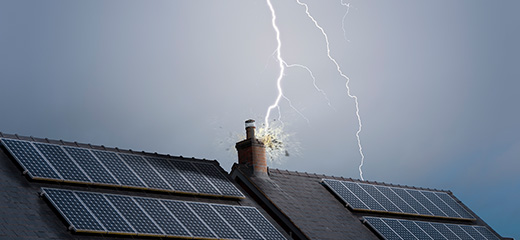
Owning vs renting a home solar system
As South African households continue to feel the pinch of above-inflation electricity price increases and ongoing loadshedding, interest in home solar power is on the rise. For those who are ready to make the move though, choosing between owning or renting a solar system can be confusing.
To help you make the best decision for your needs and budget, we look at the pros and cons of both options.
Owning a home solar system
Pros:
- Long-term financial gain: One of the biggest advantages of purchasing a solar system is the massive savings you get in electricity bills once any financing has been paid off. And given the long lifespan of solar panels (25 to 30 years) you can be sure this investment will continue to deliver benefits for years.
- No annual increases: A financed agreement will not experience annual price increases; however, your monthly repayments may be impacted by fluctuations in the interest rate.
- Electricity savings: Solar power brings down your electricity bill and these savings can help you pay off your monthly instalment.
- Sell power back to your municipality: Many municipalities are looking at ways to allow households to sell their excess power back to the grid. While the rates being considered are lower than what you pay for electricity, you’ll still feel the difference on your monthly bills.
- Flexible financing: Banks are also recognising the need to ease pressure on the grid and are actively developing lending options to help households access the benefits of renewable energy.
- Increased property value: Homes equipped with solar panels are increasingly attractive to buyers, especially as South Africa’s strained grid and need for infrastructure investment drive up electricity prices. While the market data is still in its early stages, anecdotal reports from estate agents point to solar powered homes selling faster and at higher values.
- Customise for your needs: Buying means that you can choose the makeup of the system to meet your family’s requirements. This means you can add or subtract solar panels and batteries or upgrade your inverter for future growth.
- Long warranty periods: The good news is that the various components of a solar system typically come with long warranties, ranging from 10 years for solar panels to 5 years for batteries.
Cons:
- High upfront cost: Probably the biggest concern for households is the upfront cost, especially if your financial resources are limited. Before dismissing purchasing, however, speak to your bank or solar installer about the financing options available to you.
- Higher monthly repayments: The monthly repayments on a financed solar system are higher than those you’ll find on a solar rental agreement.
- Maintenance responsibility: While some solar installers will include a period of free service and maintenance in the purchase, these costs will be yours once that time has passed. Speak to your installer about how often service checks should take place and how much they typically cost.
- Repairs and replacement: Once your warranty expires you will be responsible for any repairs or replacement costs not covered by your insurer.
Renting a home solar system
Pros:
- Low upfront costs: Renting a solar system provides a financially accessible option for homeowners who may not have the capital to invest in purchasing a solar installation. Most rental agreements will require an admin or initiation fee.
- Lower monthly payments: One of the advantages of a rental agreement is the lower monthly costs.
- Electricity savings: Solar power brings down your electricity bill and these savings can help you pay off your monthly rental.
- Maintenance and repairs: Most solar rental agreements include maintenance and repair services, ensuring that the system operates optimally without incurring extra costs.
- Rent-to-own: Many solar subscription offerings allow you to move to a rent-to-own contract after a few years. It’s worth noting, however, that the rental repayments prior to the conversion to rent-to-own will not contribute towards the buy-out.
- Flexibility: Renting offers flexibility for those who are in a rental home, or who might be planning to move in the near future, as ending a solar rental agreement is generally straightforward. If this applies to you, make sure to scrutinise the contract to ensure you are prepared for any additional de-installation costs.
Cons:
- Annual increases: Unfortunately, you can expect to see annual increases in your monthly rental agreement. These tend to range between 5% and 7% per year.
- Higher long-term costs: Over the years, the cumulative rental payments may overtake the cost of purchasing a solar system, making renting far less cost-effective in the long run.
- Contractual obligations: Renting a solar system involves signing a contract, which may include specific terms and commitments such as permanent property access. Make sure to understand exactly what is required from you.
- Cancellation costs: Be sure to read a rental contract carefully as very often these include de-installation and/or termination fees.
- No incentives or selling back: Unlike owning, renting a solar system may not provide access to government incentives or tax benefits. Your service provider will also own any additional power that you generate and sell it back to the grid for their own benefit.
- No increases in property value: As the solar system is rented, this value will not lead to faster property sales at higher values. You might also have to negotiate with a potential buyer to take over the rental agreement.
Choosing between owning and renting a home solar system is a significant decision for South African households. To make the best choice, carefully consider your financial situation, long-term goals, and electricity requirements.
Evaluating the available incentives, consulting with reputable solar providers, and seeking advice from financial experts will help you make a well-informed decision that aligns with your family’s needs.
LookSee's solar offering includes a free consultation with an Energy Advisor and a Savings Guarantee with R2 000 cashback if we miss the mark.
